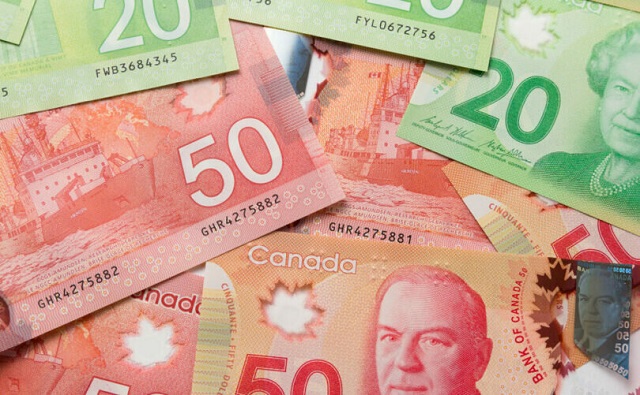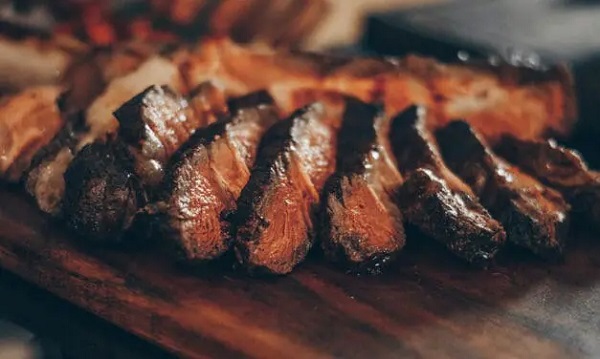Uncategorized
Canadian Conservatives look to gather support for bill banning a central bank digital currency

From LifeSiteNews
Bill C-400, sponsored by Conservative MP Ted Falk, seeks to ensure that a central bank digital currency is never created and that Canadians will always be able to use physical cash in the settling of debts and other financial transactions.
Canada’s Conservative Party is looking to gather support for a bill that would outright ban the federal government from creating a central bank digital currency (CBDC) and make it so that cash is kept as the preferred means of settling debts.
The bill, dubbed the Framework on the Access to and Use of Cash Act, or Bill C-400, is sponsored by Conservative MP Ted Falk and already passed its first reading back in June of 2024. It is currently awaiting its second reading.
According to Falk, for “millions of Canadians,” notably “vulnerable folks in our population,” the use of “physical cash is essential to everyday life.”
“Likewise, charities, community organizations, and remote communities rely on cash to achieve their worthy goals,” he said while speaking of his bill.
“Finally, in a world where governments, banks, and corporations are increasingly infringing on the privacy rights of Canadians, cash remains the only truly anonymous form of payment.”
At its core, Bill C-400, if passed, would allow for a national framework to be made which would ensure that Canadians always have access to and can use cash. It would also amend Canada’s Currency Act to restrict the current finance minister’s ability to suddenly put out a call that all bank notes be recalled. Finally, the bill would amend the Bank of Canada Act to ban it from creating any form of digital dollar.
The bill also calls for ways to “incentivize businesses and creditors to accept payments made in cash,” as well as to “remove barriers and disincentives in relation to donations made in cash to non-profit organizations and community organizations without compromising efforts to curtail money laundering, fraud and other financial crimes.”
As previously reported by LifeSiteNews, an overwhelming majority of Canadians want the government and the Bank of Canada (BOC) to “leave cash alone” and not proceed with the creation of a so-called “digital dollar.” The feedback came after the BOC launched a public survey to gauge Canadians’ taste for a digital dollar.
Despite the bill before Parliament and the survey, as previously reported by LifeSiteNews, the BOC has already forged ahead by filing a trademark for a “digital” buck.
Conservative leader Pierre Poilievre has before promised that if he is elected prime minister come the next election, he would stop any implementation of a “digital currency” or a compulsory “digital ID” system.
As recently as a week ago he posted on X about protecting “cash.”
“Ban central bank digital currency, protect your freedom to use cash, and get the government out of your wallet. Proud to support @MPTedFalk‘s common sense Conservative Bill C-400 to protect the privacy & freedom of Canadians,” Poilievre wrote.
Ban central bank digital currency, protect your freedom to use cash, and get the government out of your wallet.
Proud to support @MPTedFalk's common sense Conservative Bill C-400 to protect the privacy & freedom of Canadians.https://t.co/NeqCsSS5fh pic.twitter.com/ft21ISLKdC
— Pierre Poilievre (@PierrePoilievre) August 12, 2024
Digital currencies have been touted as the future by some government officials, but, as LifeSiteNews has reported before, many experts warn that such technology would ultimately restrict freedom and be used as a “control tool” against citizens similar to China’s pervasive social credit system.
Prominent opponents of CBDCs have been strongly advocating that citizens use cash whenever possible and boycott businesses that do not accept cash payments as a means of slowing down the imposition of CBDCs.
Business
Beef is becoming a luxury item in Canada

This article supplied by Troy Media.
 By Sylvain Charlebois
By Sylvain Charlebois
Canadian beef prices have surged due to a shrinking cattle herd, high transportation costs, and potential market collusion
With summer weather settling in, Canadians are returning to a familiar ritual—ring up the barbecue. But as they approach the meat counter, many are faced with shockingly high prices. This year, the meat aisle has become a case study in supply-side economics and market dysfunction, leaving
consumers to wonder how this all came to be.
Since January, according to Statistics Canada, beef prices have surged dramatically. Striploin is up 34.2 per cent, top sirloin 33.7 per cent, and rib cuts nearly 12 per cent. Pork rib cuts and chicken breasts have each risen 5.9 per cent, while even meatless burger patties are 6.8 per cent more
expensive. Beef has led the way in these increases, and its dominance in the price hikes is striking. What’s particularly concerning is that it’s not just one cut of beef—virtually every option has seen a dramatic jump, putting pressure on Canadian consumers who were already grappling with rising food costs.
The cause behind these increases lies in Canada’s shrinking beef cow inventory, now at just 3.38 million head—the lowest since 1989. This represents a 1.2 per cent drop from last year, but it signals much more than a cyclical decline. Many cattle producers, facing an increasingly volatile market, are choosing to exit the industry while prices are favourable. Others are opting to reinvest in less risky sectors or even shift entirely to crop production, leaving the beef industry in a precarious state. In short, Canada’s beef industry is retreating, and with that retreat comes rising prices, fewer available cattle, and growing uncertainty.
South of the border, the U.S. is seeing a similar trend, but far less severe. According to the United States Department of Agriculture, the
American beef cow herd declined by just 0.5 per cent to 27.9 million head. This relatively modest drop, coupled with less disruption in their production practices, has resulted in more stable prices.
Over the past year, U.S. boneless sirloin steak rose 5.7 per cent, compared to a staggering 22 per cent in Canada. Ground beef saw a 10.8 per cent increase in the U.S., but 23 per cent in Canada. The price difference between the two countries is stark, and Canadians are feeling the inflationary pressure much more acutely.
There are several factors contributing to the price hikes: Canada’s vast geography, high transportation costs, a limited number of federally licensed beef processors, carbon pricing, and higher labour costs. Carbon pricing, in particular, has added a burden to sectors like beef production, where transportation costs are high. Regulations and logistical inefficiencies add to the costs, driving up prices for retailers and, ultimately, consumers.
This combination of factors is having a compounding effect on the price of beef, making it increasingly out of reach for many.
But there’s another possibility we can’t ignore: potential collusion within the industry. In Canada, a small number of large processors control much of the beef supply, which gives them significant influence over prices. The U.S. government has taken strong action against price-fixing among major meat packers like JBS, Tyson Foods, Cargill, and National Beef, leading to multimillion-dollar settlements. In Canada, however, the Competition Bureau has remained largely silent on similar concerns, allowing the possibility of price-fixing to persist unchecked. Perhaps it’s time for Canada to follow the U.S. lead and ensure the beef industry is held accountable for its actions.
The consequences of these rising costs are already evident. According to IBISWorld, Canadian per capita beef consumption fell by 7.1 per cent in 2023 and is expected to drop another 2.1 per cent in 2024. This isn’t merely a shift in dietary preferences—this is a structural change in consumer behaviour. Beef is becoming increasingly viewed as a luxury item, with many budget-conscious households turning to ground beef as a more affordable option. For many Canadians, beef is no longer a staple food but rather an occasional indulgence, reserved for special occasions or holiday meals.
This shift is unfortunate. Beef remains one of the most natural, sustainable sources of protein available to Canadians. Ranchers and processors have made significant strides in improving environmental stewardship, animal welfare, and food safety, often without recognition. Beef is not only nutritionally dense but also supports rural economies and provides a level of traceability few other protein sources can offer.
For many Canadian families, a summer steak on the grill is becoming more of a splurge than a staple. While Canadians will continue to enjoy beef, the frequency and volume of consumption will likely diminish.
Barbecue season hasn’t disappeared, but for many, it’s starting to look a little different: more sausages, more chicken, and fewer striploins. A shame, really, for a product that offers so much more than just taste.
Dr. Sylvain Charlebois is a Canadian professor and researcher in food distribution and policy. He is senior director of the Agri-Food Analytics Lab at Dalhousie University and co-host of The Food Professor Podcast. He is frequently cited in the media for his insights on food prices, agricultural trends, and the global food supply chain.
Troy Media empowers Canadian community news outlets by providing independent, insightful analysis and commentary. Our mission is to support local media in helping Canadians stay informed and engaged by delivering reliable content that strengthens community connections and deepens understanding across the country.
Uncategorized
Poilievre on 2025 Election Interference – Carney sill hasn’t fired Liberal MP in Chinese election interference scandal

From Conservative Party Communications
“Yes. He must be disqualified. I find it incredible that Mark Carney would allow someone to run for his party that called for a Canadian citizen to be handed over to a foreign government on a bounty, a foreign government that would almost certainly execute that Canadian citizen.
“Think about that for a second. We have a Liberal MP saying that a Canadian citizen should be handed over to a foreign dictatorship to get a bounty so that that citizen could be murdered. And Mark Carney says he should stay on as a candidate. What does that say about whether Mark Carney would protect Canadians?
“Mark Carney is deeply conflicted. Just in November, he went to Beijing and secured a quarter-billion-dollar loan for his company from a state-owned Chinese bank. He’s deeply compromised, and he will never stand up for Canada against any foreign regime. It is another reason why Mr. Carney must show us all his assets, all the money he owes, all the money that his companies owe to foreign hostile regimes. And this story might not be entirely the story of the bounty, and a Liberal MP calling for a Canadian to be handed over for execution to a foreign government might not be something that the everyday Canadian can relate to because it’s so outrageous. But I ask you this, if Mark Carney would allow his Liberal MP to make a comment like this, when would he ever protect Canada or Canadians against foreign hostility?
“He has never put Canada first, and that’s why we cannot have a fourth Liberal term. After the Lost Liberal Decade, our country is a playground for foreign interference. Our economy is weaker than ever before. Our people more divided. We need a change to put Canada first with a new government that will stand up for the security and economy of our citizens and take back control of our destiny. Let’s bring it home.”
-

 conflict2 days ago
conflict2 days agoIran nuclear talks were ‘coordinated deception’ between US and Israel: report
-

 Alberta2 days ago
Alberta2 days agoPunishing Alberta Oil Production: The Divisive Effect of Policies For Carney’s “Decarbonized Oil”
-

 Alberta2 days ago
Alberta2 days agoAlberta Premier Danielle Smith Discusses Moving Energy Forward at the Global Energy Show in Calgary
-

 conflict1 day ago
conflict1 day agoOne dead, over 60 injured after Iranian missiles pierce Iron Dome
-

 Crime3 hours ago
Crime3 hours agoManhunt on for suspect in shooting deaths of Minnesota House speaker, husband



